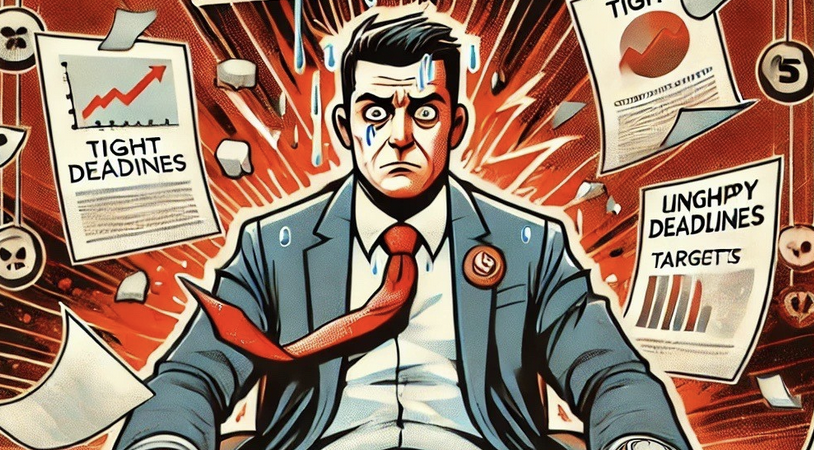Over the years, I have worked for numerous sales managers, been a sales leader, and trained and coached hundreds of sales managers/leaders.
I have seen great ones and I’ve seen poor ones. Heck, I’ve BEEN a poor one earlier in my career. Over my years of experience, I’ve learned a few things about what often separates good sales managers from not so good ones.
The following are five types of managers that are surely headed for impending sales manager failure.

1. The Rock Star
Superstar sellers don’t necessarily make superstar managers, yet that is typically the pool from which most firms draw their future sales managers. Unfortunately, many former sales stars assume that because they have been promoted, the goal is to make every seller just like them. The result? They will probably be somewhat effective managing people like themselves while totally missing the mark with sellers who are “wired differently.” Good managers treat people differently based upon what motivates and inspires the specific individual. That doesn’t mean a separate set of goals, it just means a separate set of communication styles and tactics.

2. The Lone Wolf
Like the Rock Star, many highly successful sellers never needed coaching, so they don’t necessarily know how to coach other sales reps, a crucial skill when building an effective sales force. A successful individual contributor may have never struggled with the issues that will inevitably come up within a newly inherited sales team. The lone wolf manager can still be effective, but firms need to provide solid foundational management training for their new sales managers to fill in crucial gaps in experience.

3. The Power Closer
This individual is driven by equal parts ego and drive to win. In and of themselves these are good traits, but too often new managers want to still be the Power Closer and jump into deals to make sure the business is closed. Unfortunately, they often hijack the process away from the primary salesperson at a time that is typically the most fun and rewarding point of the sale. This can result in resentment and hurt feelings on the part of sellers, or worse if the manager starts taking credit for the wins with upper management. Great sales managers enable their teams to own their successes and don’t take away from them.

4. The Cruiser
The Cruiser is another flawed management style which typically stems from self-directed star sellers who are put in a management position. They believe in a hands-off approach to management, such as they themselves prefer, which typically results in feelings of abandonment by sellers driven by too little direction or feedback. Too often Cruisers do not communicate with struggling team members until it is too late or upper management is pressuring them for answers. Once again, providing good foundational management training is a great way to prevent this from being an issue.

5. The Buddy
These individuals are typically top sellers who are promoted to manage the same sales team they previously worked with. They still want to maintain the friendship and camaraderie they had with their peers before the promotion and often struggle to gain the proper respect and deference necessary in a leadership position.
It is extremely difficult to go from being one of the gang and hanging out with your buddies to suddenly managing them, and some members of the team may even feel resentment toward their “buddy” as a new manager if they feel they should have been promoted instead.
Ideally, newly promoted sales managers wouldn’t manage a sales team they were previously a part of but when they do, establishing a new type of relationship at the outset is paramount for success.
There are certainly many reasons why sales managers don’t succeed but the overarching common problem is that most weren't adequately prepared to be managers.
If a company is promoting anyone from a position of individual contribution to a position of leadership, they should also be providing a formal management education program.
Assuming new managers will just figure it out themselves is simply setting up new managers to fail.






